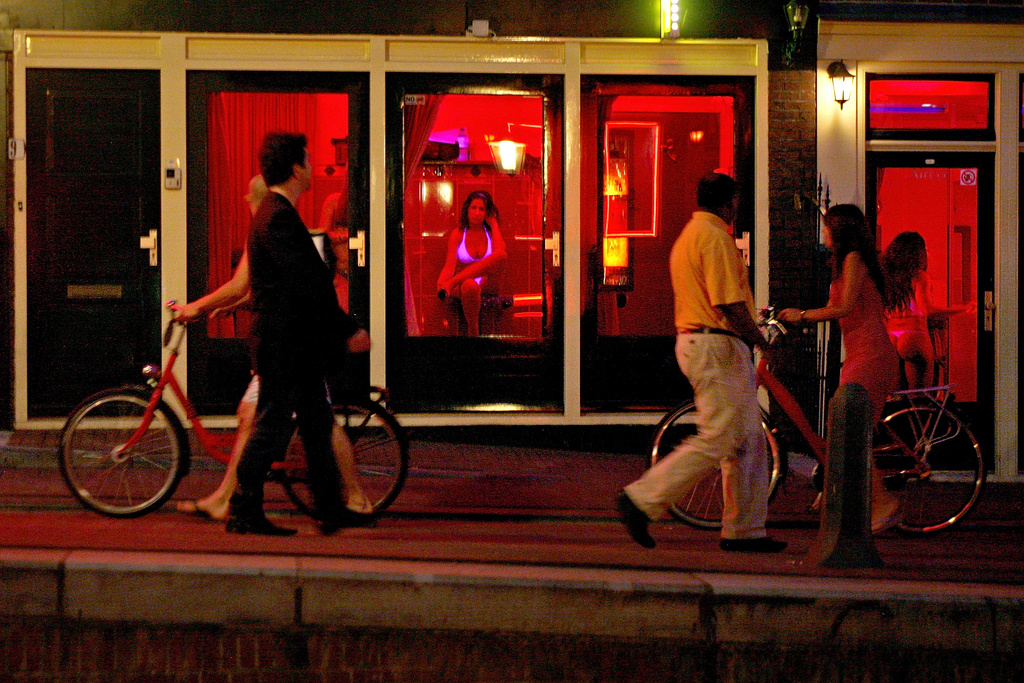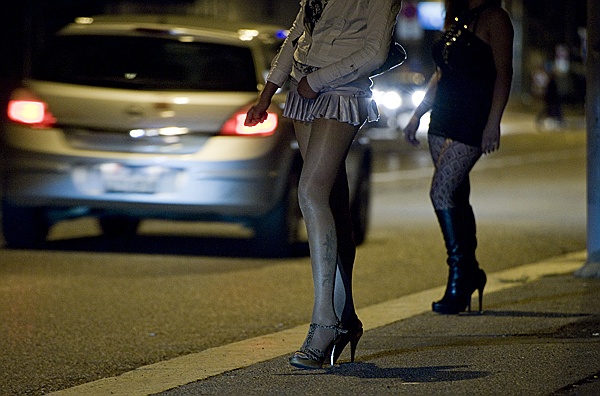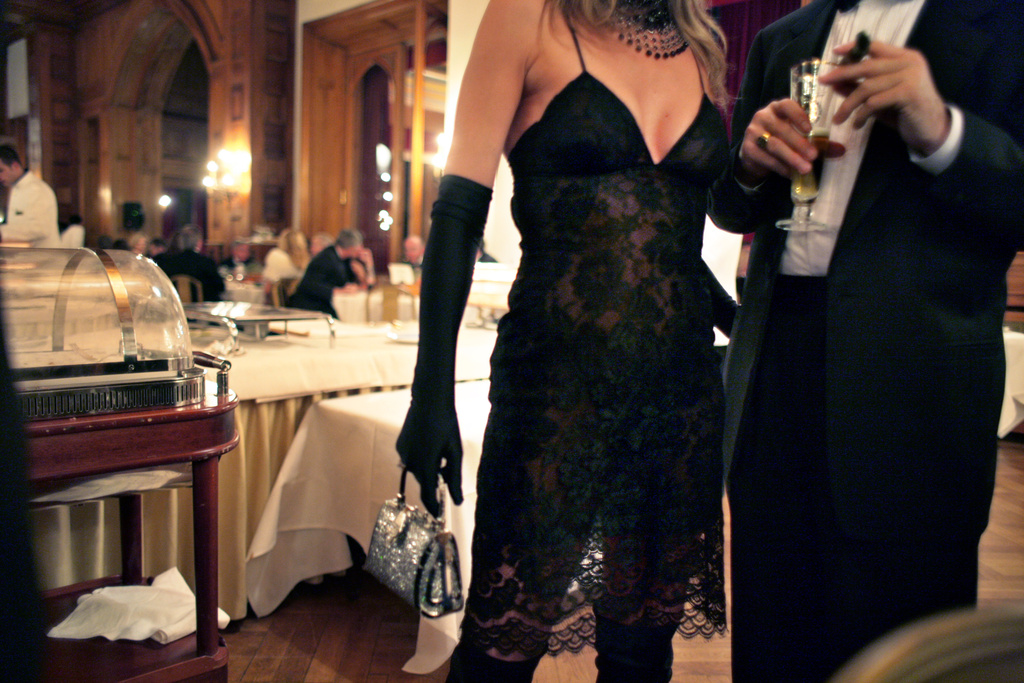Making prostitution safer

If sex work were treated like any other profession, many of the problems associated with it, including violence, could be easier to tackle.
Eva Büschi, a professor at the School of Social Work of the University of Applied Sciences Northwestern Switzerland, interviewed managers of sex establishments for a study entitled “Violence in the Sex Business” and concluded that lack of regulation was a major problem for both sex workers and the establishments themselves.
“In other businesses workers get contracts, in which the tasks to be performed, the price and how long they should take are clearly laid down. In the sex business today this is mostly not the case,“ she told swissinfo.ch.
One problem is that managers of sex establishments are afraid of falling foul of the law forbidding the promotion of prostitution, she explained.
But the study shows that violence is a daily reality in the business. It occurs among customers, between the managers and the workers, and among the workers themselves.
However, the managers of the businesses often downplay the issue. They tend to see their main problem as social stigmatisation, Büchi found.
Pragmatic approach
Given that the legal sex business generates a turnover put at SFr3.5 billion ($4.4 billion) per year, Büschi says it should be approached pragmatically, ensuring that workers are given the best possible conditions.
Pius Segmüller, well-known for his Christian convictions (he was for four years the head of the Papal Guard and is a member of the Christian Democrat party), told swissinfo.ch that he personally regards prostitution as immoral, but as commander of the Lucerne police from 2002 to 2006 he had to deal with the practical implications.
His conclusions are similar to Büschi’s.
“Sooner or later we have to give proper recognition to the business, so that it doesn’t drift into criminality,” he said. “We can’t put an end to the oldest profession by driving it underground.”
He says prostitution is safer practised in clubs or brothels than on the street. “The more legal something is, the more possibilities there are for keeping an eye on it.”
Working conditions
Proper working conditions are a key factor in preventing violence by customers, according to Büschi, because the agreement between client and sex worker could then be clearly defined from the very beginning.
Segmüller believes the managers of sex establishments should get together to form an association that would work out the norms to be followed and cooperate with each other.
“That’s the only way to really get to grips with violence and other problems,” he said.
While managers complain that they are stigmatised, he says it is to some extent their own fault. Some of them make a lot of money by treating the prostitutes unfairly, for example in what they pay them and in the infrastructure they provide.
When it comes to pimps, he draws a clear distinction between two different kinds.
“If pimps are there to put pressure on the prostitutes, I would regard that as unsavoury and illegal. But if they offer the prostitutes protection and are paid by them for that, I have nothing against it.”
Licence to operate
The authorities in Nidau in canton Bern have already introduced conditions for granting permits to would-be sex establishments. The move was regarded as a possible model for the rest of the country.
The managers of the establishments have to guarantee that the women are declared as sex workers and not as tourists, and that they are in the country legally.
They must give the women information leaflets in their own languages about their rights and duties – including that they must declare their earnings to the tax authorities.
Nor must the managers charge excessive prices for rooms or slap on unreasonable extra charges. In addition, the local advisory centre must be given unlimited access to the sex workers.
The police can make unannounced visits to check that the rules are being followed.
The establishment in Schloss Nidau was closed down in May, after a police raid found that several of the conditions were not being met.
“That is proof that the rules work,” commented Büschi.
Professionalisation
If sex work is professionalised, it will help destigmatise the work, and be easier to draw a divide between legal and illegal sex providers, the study says.
Both owners and clients will find it harder to put pressure on the workers, and that in turn will give them extra protection and make it easier to confront problems.
“The greater the pressure on sex workers, the greater the danger that they will, for example, accept a drunken client or agree to perform their services without a condom,” said Büschi.
Segmüller would like to see health tests: disease affects both workers and clients.
But he thinks society – in particular the way people are brought up – needs to warn would-be sex workers of the dangers of prostituting themselves.
“You are selling yourself, surrendering yourself to someone. And although most of those involved deny it, this is a burden for these people.”
Büschi’s research was conducted with the managers of sex establishments in Basel.
It covered only legal sex work in clubs, massage parlours, contact bars etc.
She stressed that it did not cover such issues as human trafficking or underage sex, and that the findings of her research cannot be transferred to such areas.
Maritza Le Breton, her colleague from the School of Social Work of the University of Applied Sciences Northwestern Switzerland, spoke to sex workers with a migration background in the same town.
However, they say their conclusions apply across the country.
Both researchers found that only if sex work is accorded more legal and social recognition can the workers be more secure.
Born 1952; after working as a teacher has had various jobs in the army and police as well as in politics. These include:
1992-4: Police officer in St Gallen.
1998-2002: Commander of the Papal Guard.
2002-06: In charge of of Lucerne city police.
2007-09: Head of security for football world governing body Fifa.
2009 – present: Owner and head of security consultancy.
He was elected to the House of Representatives in 2007.
(Adapted from German by Julia Slater)

In compliance with the JTI standards
More: SWI swissinfo.ch certified by the Journalism Trust Initiative












You can find an overview of ongoing debates with our journalists here . Please join us!
If you want to start a conversation about a topic raised in this article or want to report factual errors, email us at english@swissinfo.ch.